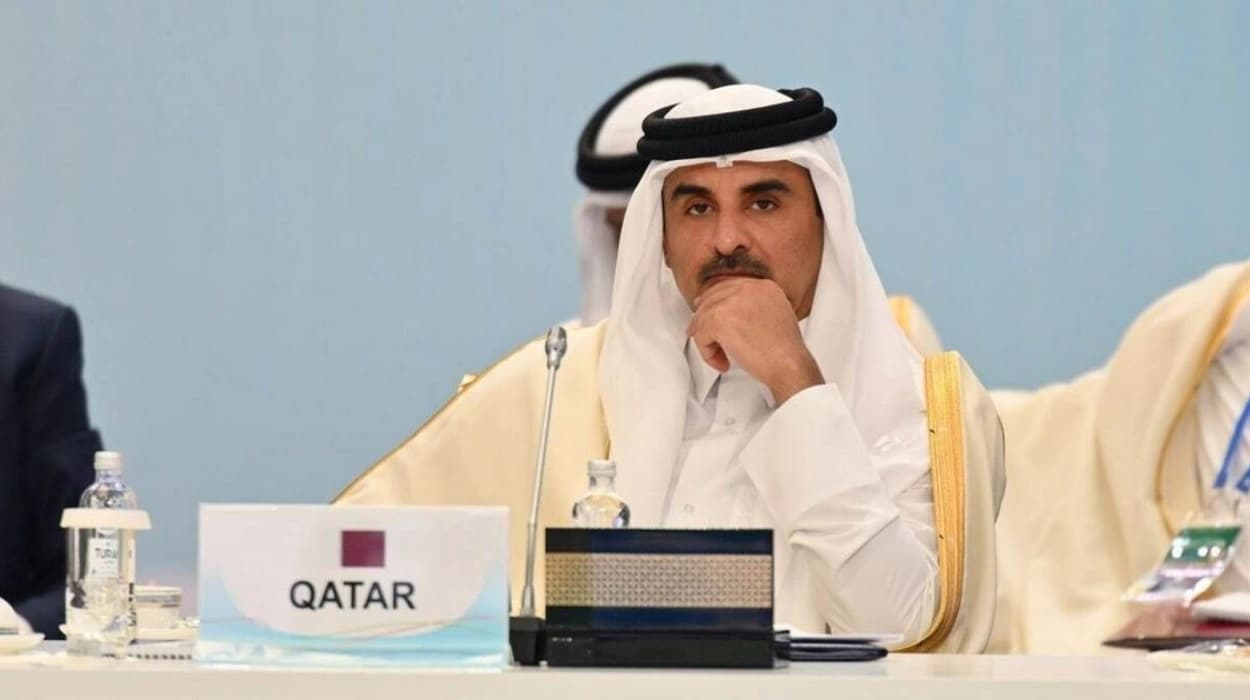Qatar, a small Gulf state with outsized influence, has
successfully cultivated a strategic mix of regional diplomacy and international
investment policies that have profoundly shaped its political and economic
landscape. Harnessing abundant natural resources, particularly in energy, and
leveraging a sophisticated diplomatic approach, Qatar has emerged as a key
player in regional conflict resolution and global economic partnerships. This
article explores how government policies have driven Qatar’s regional
diplomatic initiatives and fostered international investment flows, supporting
economic diversification and sustainable development.
Qatar’s Strategic Regional Diplomacy: Balancing Influence and Mediation
The foundation of Qatar’s foreign policy is diplomacy
grounded in dialogue, mediation, and conflict resolution. Despite its small
geographical size, Qatar has demonstrated an exceptional diplomat profile,
successfully navigating complex Middle Eastern geopolitics. Post-2017, after
enduring a blockade by neighboring Gulf states, Qatar amplified its diplomatic
efforts, showcasing resilience and an ability to manage crises effectively.
This period of tension served to enhance Doha’s reputation as a mediator with
both regional and international reach.
Qatar’s mediation diplomacy is considered among the most
robust globally, with active roles in conflicts ranging from Lebanon’s
political crises to Sudan’s Darfur peace talks, Yemen’s ongoing conflict, and
recent high-profile ceasefire negotiations involving Israel and Hamas. These
efforts are backed by the constitutional commitment to peaceful dispute
resolution and respect for international law, showcasing Qatar’s integration of
diplomatic principles within a legal framework that supports international
peace and security.
The country’s mediation role is not limited to traditional
diplomacy. Qatar leverages soft power through influential institutions such as
Al Jazeera media network and the Qatar Foundation, which extend its regional
influence beyond politics to cultural and educational domains. Additionally,
Qatar’s strategic location between regional powers Saudi Arabia and Iran
necessitates a nuanced foreign policy that promotes regional stability while
safeguarding national sovereignty.
Underpinning these diplomatic approaches are government
policies that prioritize peacebuilding, international cooperation, and
humanitarian assistance. Qatar commits to alleviating discrimination,
supporting minority rights, and addressing humanitarian crises in conflict
zones. These multi-track diplomatic efforts contribute to Qatar being viewed as
a trusted stakeholder in global peace processes.
Economic Diversification and Investment: Transforming Qatar’s Global Economic Profile
Parallel to diplomatic strategies, Qatar has deployed
comprehensive government policies to stimulate international investment
partnerships and diversify its economy beyond hydrocarbon resources.
Recognizing the volatility inherent in energy markets, Qatar has launched
ambitious economic reforms and infrastructure projects aimed at fostering a
knowledge-based, diversified economic model.
Qatar’s National Vision 2030 and the Third National
Development Strategy guide these efforts, emphasizing private sector growth,
sectoral diversification, and digital transformation to fuel sustainable
economic progress. Government-backed infrastructure programs, including
world-class ports, airports, metro networks, and facilities developed for the
FIFA World Cup 2022, have not only enhanced national capacity but also
attracted international business and tourism.
One of the cornerstones of Qatar’s investment approach is
the Qatar Investment Authority (QIA), the sovereign wealth fund established in
2005 to safeguard and strategically grow the country’s financial assets. QIA
plays a pivotal role in global investment partnerships, managing diversified
portfolios across sectors such as petrochemicals, real estate, technology, and
renewable energy. Its strategic accords with international firms and financial
institutions span multiple continents, underscoring Qatar's global investment
footprint.
Government reforms abolished restrictive foreign ownership
barriers, allowing 100% foreign ownership in most sectors and enhancing foreign
direct investment (FDI) attractiveness. Legislative improvements, including
bankruptcy laws, public-private partnership frameworks, and streamlined
commercial registration, foster a pro-business environment conducive to foreign
investments. Qatar’s investment treaties and membership in regional economic
alliances support cross-border trade and investment flows.
Despite challenges such as a relatively small domestic
market and regional political complexities, Qatar’s commitment to improving
business efficiency and innovation fosters competitive advantages. Its ranking
on global indices for economic freedom and innovation reflects steady progress.
Furthermore, Qatar’s labor policies, including abolishing the Kafala
sponsorship system, enhance the labor market’s flexibility and support a more
inclusive workforce essential for economic diversification.
Sustainable growth is another pillar of Qatar's policies,
with investments channeling into renewable energy and digital infrastructure.
Partnerships aiming to expand data center capacities and digital services
illustrate Qatar’s orientation toward future-proof economic sectors, ensuring
long-term competitiveness.
Impact and Outlook: Qatar’s Model of Diplomacy and Investment Synergy
Qatar’s fusion of proactive regional diplomacy with
forward-looking investment policies has created a multifaceted model for small
states aiming to punch above their weight on the global stage. Its ability to
mediate regional conflicts while securing international investment flows reflects
a sophisticated understanding of geopolitical and economic dynamics.
Economic data indicates robust growth trajectories supported
by non-hydrocarbon sectors such as tourism, logistics, and financial services,
which collectively contribute a significant portion of GDP. These sectors
benefit directly from government infrastructure investment and regulatory
reforms designed to create a fertile environment for businesses.
On the diplomatic front, Qatar’s mediation work has
reinforced its image as a peace facilitator, contributing to regional stability
and establishing strategic channels for dialogue among conflicting parties.
This influence extends internationally, challenging traditional power
structures and positioning Qatar as a credible diplomatic interlocutor.
Looking forward, Qatar’s main challenge lies in deepening
private sector participation and continuing reforms to inspire more innovation
and competitiveness. Its policies emphasize digital transformation and
environmental sustainability as engines for future growth, aligning with global
trends and enhancing investment appeal.
Qatar exemplifies how coherent government policies in diplomacy and investment can jointly drive national development, enhance international standing, and foster sustainable economic growth. Its pathway offers lessons in resilience, strategic vision, and the power of nuanced engagement in an interconnected world.
